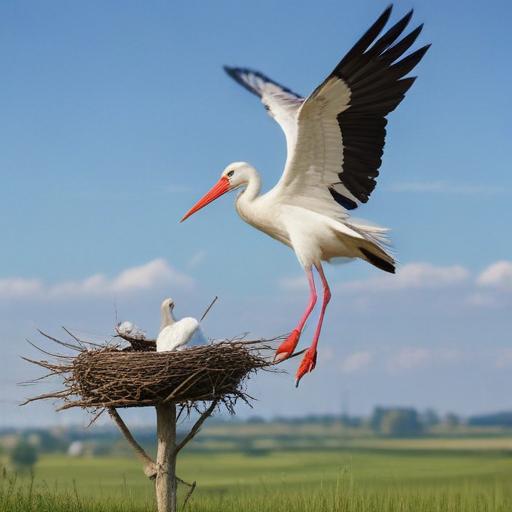The white stork, a species once considered extinct in Denmark, is experiencing a remarkable resurgence, with the highest number of nestlings recorded in decades. This encouraging development brings hope that these iconic birds may soon reestablish themselves as a common sight once again in the Nordic landscape.
Historically, the white stork population thrived in Denmark, boasting around 4,000 nesting pairs in the late 1800s. However, by 2008, their numbers plummeted to extinction locally, primarily due to agricultural expansion and the degradation of wetland habitats.
Hans Skov, a member of Storks Denmark, a dedicated volunteer organization focused on the species’ recovery, stated, “This year is something very special because we have 13 pairs and 33 nestlings, the highest number since 1986.” This resurgence has largely been enabled by focused conservation efforts and shifts in migration patterns, as climate change has led to milder European winters. This is encouraging storks to winter in warmer Spain instead of traditional locations like South Africa, resulting in higher survival rates owing to shorter migration distances.
As these storks return to Denmark, they face challenges, particularly in securing enough food to sustain their young. To support the storks, Storks Denmark allocates approximately $4,700 annually to ensure there is sufficient food available during critical periods. Skov explained, “When new pairs appear, we know how to offer them food during natural crises. If they manage to keep their nestlings alive, they are likely to return the following year.”
In a further effort to understand the migration patterns of these birds, Denmark’s Natural History Museum is tagging five additional nestlings this year with GPS devices.
The ongoing recovery of the white stork population exemplifies the positive impact that conservation initiatives can have on wildlife recovery, highlighting the importance of protecting natural habitats and supporting biodiversity efforts.
